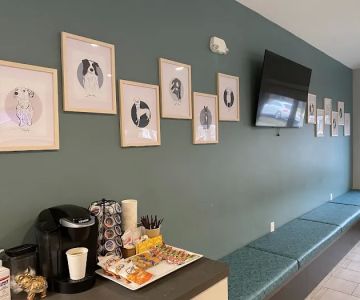- 1-Understanding-Preventative-Care-in-Veterinary-Medicine
- 2-Key-Components-of-Preventative-Veterinary-Care
- 3-How-Veterinary-Medicine-Reduces-Risk-and-Costs
- 4-Role-of-Regular-Checkups-and-Screenings
- 5-Nutritional-Guidance-and-Lifestyle-Management
- 6-Success-Stories-Showcasing-Preventative-Veterinary-Care
1. Understanding Preventative Care in Veterinary Medicine
Preventative care is the foundation of maintaining optimal health for pets and animals. The role of veterinary medicine in preventative care encompasses strategies aimed at identifying and mitigating health risks before they develop into serious illnesses. This approach focuses on routine evaluations, vaccinations, parasite control, and early detection.
By prioritizing prevention, veterinarians help pets live longer, healthier lives while reducing the emotional and financial burden on pet owners.
2. Key Components of Preventative Veterinary Care
Preventative veterinary care includes vaccinations to protect against infectious diseases, dental cleanings to prevent oral health issues, and parasite prevention protocols. Additionally, regular wellness exams allow vets to monitor growth, weight, and overall condition, tailoring health plans to individual pets.
These components work synergistically to maintain health and improve quality of life for animals of all ages.
3. How Veterinary Medicine Reduces Risk and Costs
Early detection through veterinary medicine minimizes risks associated with chronic diseases like diabetes, arthritis, and cancer. Preventative measures often cost less than treating advanced conditions, making routine veterinary visits a smart investment.
Moreover, educated pet owners who engage in preventative care are better equipped to recognize subtle changes in their pets’ health and seek timely help.
4. Role of Regular Checkups and Screenings
Routine veterinary checkups provide opportunities for comprehensive physical exams and diagnostic screenings. These evaluations detect abnormalities early, facilitating prompt intervention. Blood tests, urinalysis, and imaging are among the tools vets use to assess organ function and detect hidden conditions.
Regular checkups also allow for vaccination updates and personalized advice based on life stage and lifestyle.
5. Nutritional Guidance and Lifestyle Management
Veterinary medicine plays a crucial role in guiding pet nutrition and lifestyle choices. Proper diet tailored to breed, age, and health status supports immune function and prevents obesity-related problems. Additionally, veterinarians advise on exercise routines, behavioral health, and environmental enrichment to promote overall wellness.
Such guidance is integral to a holistic preventative care plan.
6. Success Stories Showcasing Preventative Veterinary Care
Many pet owners credit preventative veterinary care for extending their pets’ lives and enhancing well-being. One dog owner shares how annual screenings at Hidden Brook Veterinary caught early kidney issues, enabling timely treatment and improved quality of life.
These success stories underscore the value of regular veterinary involvement in preventative health strategies.
To learn more about the role of veterinary medicine in preventative care and access expert services, visit Hidden Brook Veterinary. Their commitment to proactive pet health ensures animals receive the care they need for vibrant, healthy lives.











